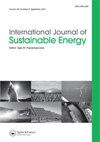太阳热:东德无形的土地掠夺
IF 2.7
Q4 ENERGY & FUELS
引用次数: 0
摘要
本文介绍了一个民族志分析的规划和实施的开放领域光伏电站在农业用地在东德。采用定性方法,该研究深入研究了围绕德国可再生能源部门扩张的多方面动态,特别是在被认为是“能源之州”的勃兰登堡。尽管德国致力于发展可再生能源,但缺乏一个全面的法律框架来管理太阳能装置土地使用的冲突,这构成了重大挑战。为大规模发电而设计的大型太阳能园区往往需要大量征地,这引发了冲突,特别是当潜在的土地用于农业用途时。这项研究强调了人们对土地的看法正在从社会生态财富转变为单纯的经济资源。通过能源转型解决生态临界点的紧迫性,与目前投资者和开发商为追求经济利益而肆无忌惮地收购土地的情况形成了鲜明对比。这种现象被称为“无形的土地掠夺”,导致人们对大型光伏项目缺乏信任,并可能阻碍太阳能光伏项目的审批程序。总之,本文强调了能源转型、土地管理和社会生态福祉之间错综复杂的相互作用。它呼吁采取一种全面的方法来解决可再生能源扩张和土地利用对伦理、生态和经济的影响。本文章由计算机程序翻译,如有差异,请以英文原文为准。
The solar rush: invisible land grabbing in East Germany
The article presents an ethnographic analysis of the planning and implementation of open-field photovoltaic (PV) plants on agricultural land in East Germany. Employing qualitative methods, the study delves into the multifaceted dynamics surrounding the expansion of Germany’s renewable energy sector, particularly in the considered 'energy state' of Brandenburg. Despite Germany’s commitment to renewable energy, the absence of a comprehensive legal framework governing conflicts over land use for solar energy installations poses significant challenges. Large-scale solar parks, designed for mass energy generation, often necessitate significant land acquisition, which sparks conflicts, particularly when the potential land serves agricultural purposes. The study underscores the shifting perception of land from socioecological wealth to a mere economic resource. The urgency of addressing ecological tipping points through energy transitions contrasts with the current scenario of unchecked investor and developer land acquisitions in pursuit of economic gains. This phenomenon, characterised as ‘invisible land-grabbing,’ has engendered a lack of trust in large-scale PV projects and potentially hampers solar PV approval processes. In conclusion, the article highlights the intricate interplay between energy transitions, land management, and socioecological well-being. It calls for a holistic approach to address the ethical, ecological, and economic implications of renewable energy expansion and land use.
求助全文
通过发布文献求助,成功后即可免费获取论文全文。
去求助
来源期刊

International Journal of Sustainable Energy
ENERGY & FUELS-
CiteScore
5.70
自引率
3.20%
发文量
52
期刊介绍:
Engineering and sustainable development are intrinsically linked. All capital plant and every consumable product depends on an engineering input through design, manufacture and operation, if not for the product itself then for the equipment required to process and transport the raw materials and the final product. Many aspects of sustainable development depend directly on appropriate and timely actions by engineers. Engineering is an extended process of analysis, synthesis, evaluation and execution and, therefore, it is argued that engineers must be involved from the outset of any proposal to develop sustainable solutions. Engineering embraces many disciplines and truly sustainable solutions are usually inter-disciplinary in nature.
 求助内容:
求助内容: 应助结果提醒方式:
应助结果提醒方式:


